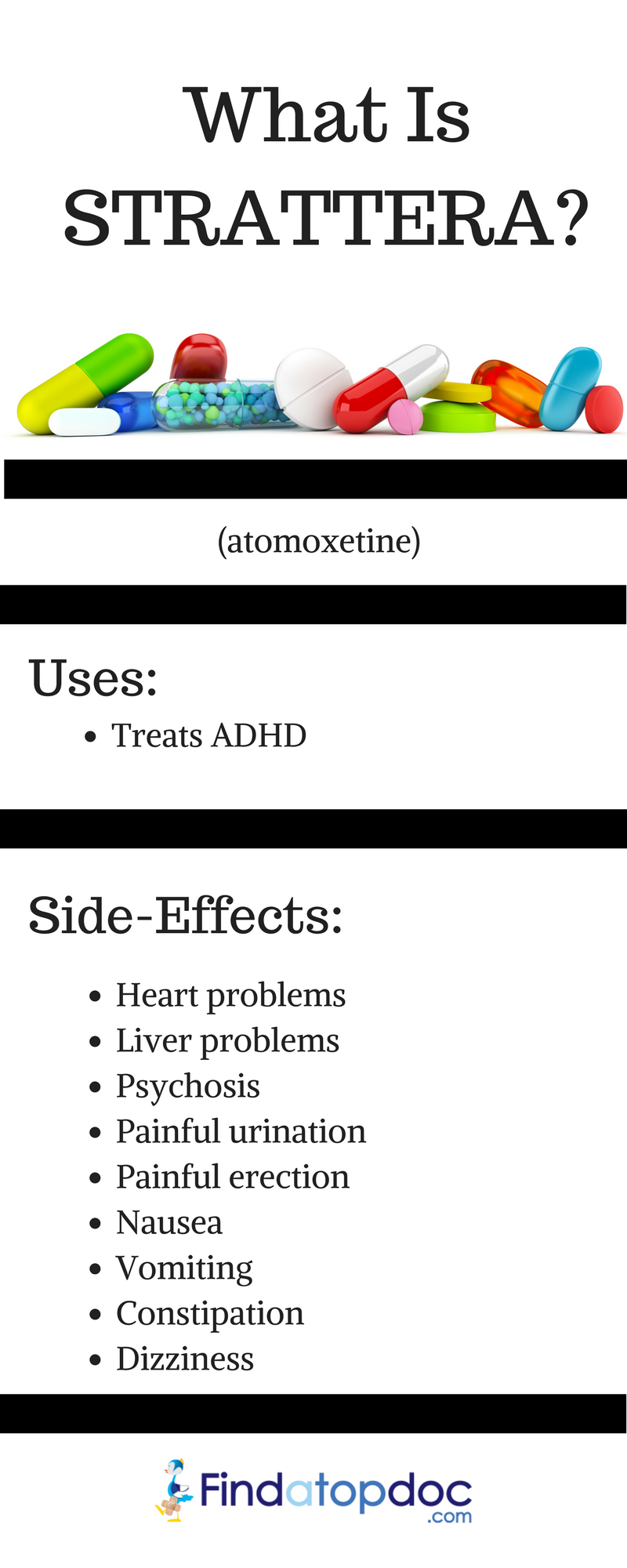
Source
When not to use Strattera?
You should not use Strattera if you have narrow-angle glaucoma, an adrenal gland tumor, heart disease or coronary artery disease. Do not use Strattera if you have taken a MAO inhibitor in the past 14 days, including isocarboxazid, linezolid, methylene blue injection, phenelzine, rasagiline, selegiline, tranylcypromine, and others. Strattera may cause new or worsening psychosis, unusual thoughts or behavior, especially if you have a history of depression, mental illness, or bipolar disorder.
Strattera has caused stroke, heart attack, and sudden death in people with high blood pressure, heart disease, or a heart defect. Many young people have thoughts about suicide when they first start taking this medicine, or whenever the dose is changed. Pay attention to changes in your mood or symptoms, especially if you have ever had suicidal thoughts.
How to take Strattera?
- Take Strattera exactly as prescribed by your doctor. Follow all directions on your prescription label. Your doctor may occasionally change your dose. Do not use this medicine in larger or smaller amounts or for longer than recommended.
- Take the medicine at the same time each day, with a glass of water.
- You may take this medicine with or without food.
- Do not crush, chew, break, or open a Strattera capsule. Swallow the capsule whole..
- Use Strattera regularly to get the most benefit. Get your prescription refilled before you run out of medicine completely.
- Do not use a capsule that has been opened or accidentally broken. The medicine from inside the capsule can be dangerous if it gets in your eyes. If this occurs, rinse your eyes with water. Ask your doctor or pharmacist how to safely handle and dispose a broken capsule.
- While taking Strattera, your doctor will need to check your progress at regular visits. Your heart rate, blood pressure, height and weight may also need to be checked often.
It’s important to get emergency help if you have signs of an allergic reaction to Strattera. Some of them are: hives; difficult breathing; swelling of your face, lips, tongue, or throat.
Report any new or worsening symptoms to your doctor, such as: anxiety, panic attacks, trouble sleeping, or if you feel impulsive, irritable, agitated, hostile, aggressive, restless, hyperactive (mentally or physically), depressed, or have thoughts about suicide or hurting yourself.
Stop using this medicine and call your doctor at once if you have:
- signs of heart problems - chest pain, trouble breathing, feeling like you might pass out;
- signs of psychosis - hallucinations (seeing or hearing things that are not real), new behavior problems, aggression, hostility, paranoia;
- liver problems - stomach pain (upper right side), itching, flu-like symptoms, dark urine, jaundice (yellowing of the skin or eyes);
- painful or difficult urination; or
- erection is painful or lasts longer than 4 hours (this is a rare side effect).
- nausea, vomiting, upset stomach, constipation;
- dry mouth, loss of appetite;
- mood changes, feeling tired;
- dizziness;
- urination problems; or
- impotence, trouble having an erection.